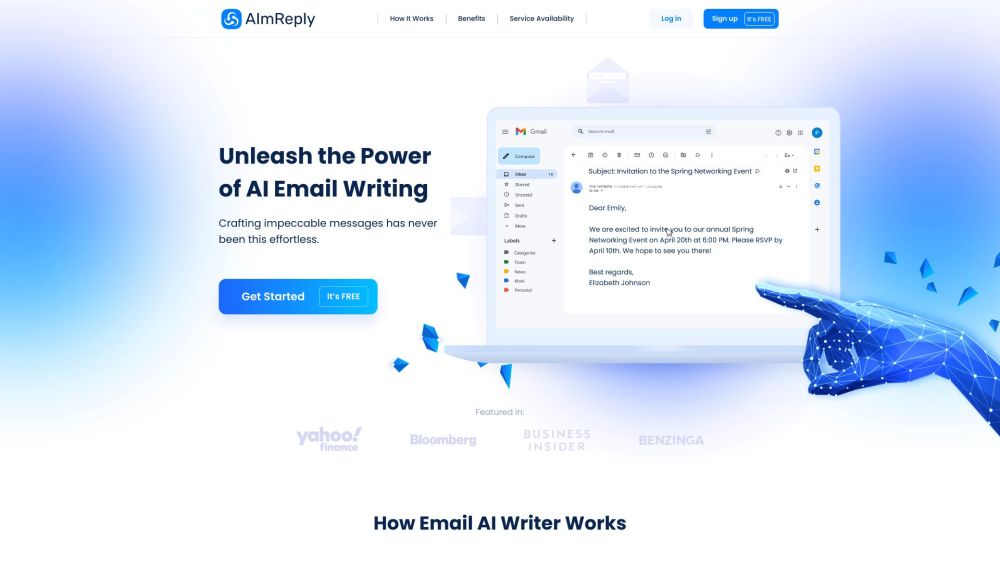OpenAI Unveils AI Citation and Image Safety Measures Before 2024 Global Elections
Most people like

Introducing an innovative video editor that leverages AI-powered tools to effortlessly transform lengthy videos into captivating, bite-sized clips. Save time and enhance your content with this efficient solution!

Enhance Your Email Productivity with Our AI Email Assistant
Unlock the full potential of your inbox with our cutting-edge AI Email Assistant, designed to streamline your communication and boost your productivity. Transform the way you manage emails, respond efficiently, and prioritize your tasks effortlessly. Experience a smarter approach to emailing today!

Guard Your Users Against Harmful Content
In today's digital landscape, safeguarding your users from harmful content is more crucial than ever. As online interactions increase, the risk of exposure to inappropriate or dangerous material also rises. By implementing robust content moderation strategies, you not only protect your audience but also enhance their overall experience, building trust and loyalty to your platform. Prioritize user safety and create a secure online environment today.

Are you looking to enhance your blog content and captivate your audience? Converting your blog posts into eye-catching infographics is a powerful way to present information visually. Infographics not only simplify complex data but also make it more shareable, boosting your content's reach. In this guide, we'll explore effective strategies to turn your written content into stunning infographics that engage readers and elevate your brand’s visibility. Discover how to maximize the impact of your blog posts by harnessing the art of infographics!
Find AI tools in YBX

